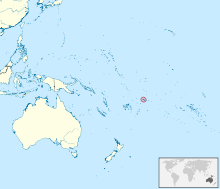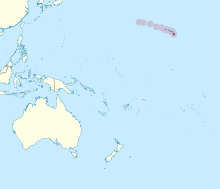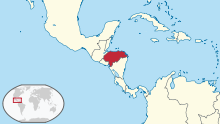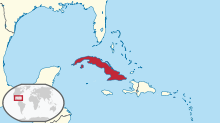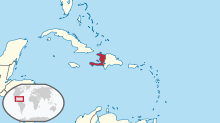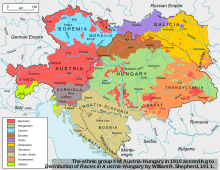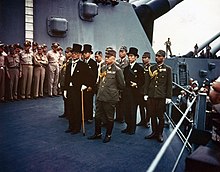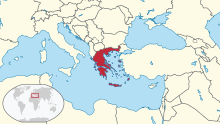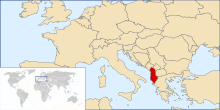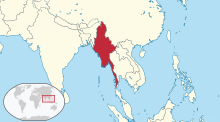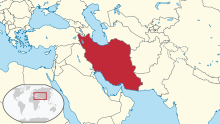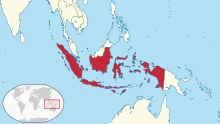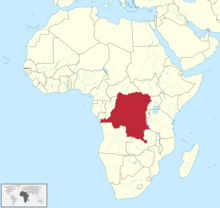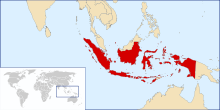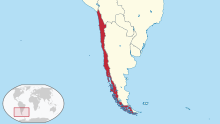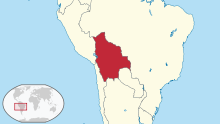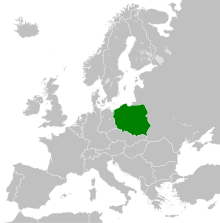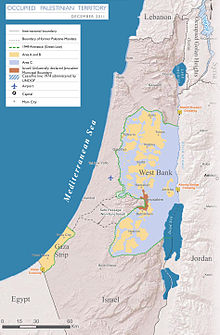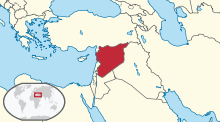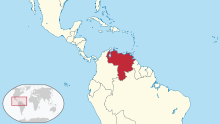United States involvement in regime change
At the onset of the 20th century, the United States shaped or installed governments in many countries around the world, including neighbors Hawaii, Panama, Nicaragua, Mexico, Haiti, and the Dominican Republic.
[27] Henry Lane Wilson, U.S. ambassador to Mexico under William Howard Taft, actively supported the Ten Tragic Days coup which overthrew the democratically elected president, Francisco I. Madero.
Seventh Army, under Lieutenant General George S. Patton, in which over 2,000 US servicemen were killed,[54] initiating the Italian Campaign which conquered Italy from the fascist regime of Benito Mussolini and its Nazi German allies.
By early 1947, the British government could no longer afford the huge cost of financing the war against DSE, and pursuant to the October 1944 Percentages Agreement between Winston Churchill and Joseph Stalin, Greece was to remain part of the Western sphere of influence.
Za'im had extensive connections to CIA operatives,[86] and promptly approved the construction of America's TAPLINE oil pipeline in Syria, considered an important Cold War project and blocked by Quwatly's pre-coup government.
CIA officer Miles Copeland Jr. recounted in his memoirs that Roosevelt helped coordinate the coup during three prior meetings with the plotters (including Nasser, the future Egyptian president); this has not been confirmed by declassified documents but is partially supported by circumstantial evidence.
"[132] After Iraq withdrew from the anti-Soviet alliance—the Baghdad Pact—the United States National Security Council (NSC) proposed various contingencies for preventing a communist takeover of the country,[133] and "soon developed a detailed plan for assisting nationalist elements committed to the overthrow of Qasim.
"[139] On the other hand, Osgood writes that "the circumstantial evidence is such that the possibility of US–UAR collaboration with Ba'ath Party activists cannot be ruled out," concluding that: "Whatever the validity of [Sale's] charges, at the very least currently declassified documents reveal that US officials were actively considering various plots against Qasim and that the CIA was building up assets for covert operations in Iraq.
These debates crystallized after the ARVN Special Forces, which took their orders directly from the palace, raided Buddhist temples across the country, leaving a death toll estimated in the hundreds, and resulted in the dispatch of Cable 243 on August 24, 1963, which instructed United States Ambassador to South Vietnam, Henry Cabot Lodge Jr., to "examine all possible alternative leadership and make detailed plans as to how we might bring about Diem's replacement if this should become necessary".
[175][176] With CIA support, Field Marshal Sarit Thanarat, the Prime Minister of Thailand, set up a covert Royal Thai Armed Forces advisory group, called Kaw Taw.
[177] With the help of CIA front organization Air America to airlift war supplies and with other U.S. military assistance and covert aid from Thailand, General Phoumi Nosavan's forces captured Vientiane in November 1960.
[185] Pertinent contemporary documents relating to the CIA's operations in Iraq have remained classified[136][186][187] and as of 2021, "[s]cholars are only beginning to uncover the extent to which the United States was involved in organizing the coup,"[188] but are "divided in their interpretations of American foreign policy.
[192] Eric Jacobsen, citing the testimony of contemporary prominent Ba'athists and U.S. government officials, states that "[t]here is ample evidence that the CIA not only had contacts with the Iraqi Ba'th in the early sixties, but also assisted in the planning of the coup.
"[193] Nathan J. Citino writes that "Washington backed the movement by military officers linked to the pan-Arab Ba‘th Party that overthrew Qasim," but that "the extent of U.S. responsibility cannot be fully established on the basis of available documents," and that "[a]lthough the United States did not initiate the 14 Ramadan coup, at best it condoned and at worst it contributed to the violence that followed.
[196] Senior National Security Council official Robert Komer wrote to President John F. Kennedy on February 8, 1963, that the Iraqi coup "is almost certainly a net gain for our side ... CIA had excellent reports on the plotting, but I doubt either they or UK should claim much credit for it.
[204] On the other hand, Citino and Wolfe-Hunnicutt consider the assertions plausible because the U.S. embassy in Iraq had actually compiled such lists, were known to be in contact with the National Guard during the purge, and because National Guard members involved in the purge received training in the U.S.[202][205] Furthermore, Wolfe-Hunnicutt, citing contemporary U.S. counterinsurgency doctrine, notes that the assertions "would be consistent with American special warfare doctrine" regarding U.S. covert support to anti-communist "Hunter-Killer" teams "seeking the violent overthrow of a communist dominated and supported government",[206] and draws parallels to other CIA operations in which lists of suspected communists were compiled, such as Guatemala in 1954 and Indonesia in 1965–66.
[207] According to author John Prados, the CIA conducted a covert political campaign against left-wing Prime Minister Cheddi Jagan due to a fear of the spread of the Cuban Revolution across Latin America.
[225][226] Historian John Roosa states that "almost overnight the Indonesian government went from being a fierce voice for cold war neutrality and anti-imperialism to a quiet, compliant partner of the US world order.
[241][242][243][244] Despite these responses, it is documented that the United States provided diplomatic support to the Khmer Rouge by continuously voting for Democratic Kampuchea and later the CGDK to retain its seat at the UN, both immediately after its ousting as well as after it joined the coalition.
[281] In 1991, the MPLA and UNITA signed the Bicesse Accords ending US and Soviet involvement in the war, initiating multi-party elections and establishing the Republic of Angola, while South Africa withdrew from Namibia.
[326] Henry Hyde, U.S. House intelligence committee member, stated that the US provided "supplies and technical assistance in terms of clandestine newspapers, broadcasting, propaganda, money, organizational help and advice".
Immediately in January 1981, Reagan cut off aid to the Nicaraguan government, and August 6, 1981 he signed National Security Decision Directive 7, authorizing the production and shipment of arms to the region but not their deployment.
[334][335][336][337] As part of the training, the CIA distributed a detailed manual entitled "Psychological Operations in Guerrilla War", which instructed the Contras, among other things, on how to blow up public buildings, to assassinate judges, to create martyrs, and to blackmail ordinary citizens.
[358] Prior to the 1990 Russian parliamentary elections, NED funded an initiative by Paul Weyrich and the Free Congress Foundation to assist Boris Yeltsin and a group of democratic candidates and to create a "communications network".
[369] Colin Powell wrote of his time as Chairman of the Joint Chiefs of Staff "our practical intention was to leave Baghdad enough power to survive as a threat to an Iran that remained bitterly hostile toward the United States".
After the war, the U.S. government successfully advocated that sanctions remain in effect with revisions, including linkage to removal of weapons of mass destruction, which the UNSC did in April 1991 by adopting Resolution 687, albeit with the earlier prohibition on foodstuffs lifted.
[375][376][377] In the subsequent president's administration, U.S. officials did not explicitly insist on regime change but took the position that the sanctions could be lifted if Iraq complied with all of the UN resolutions it was violating (including those related to the country's human rights record) and not just with UN weapons inspections.
In the aftermath of the coup, a Multinational Interim Force led by the U.S. invaded Haiti to stabilize the country under the government of the newly-assumed provisional president Boniface Alexandre and prime minister Gérard Latortue.
[456][457][458] This alleged covert backing continued under the Obama administration until at least April 2009 when US diplomats expressed concern the funding would undermine US attempts to rebuild relations with Syrian President Bashar al-Assad.
[480][481][482][483][484][485][486] The Congressional Research Service wrote that "although the Trump Administration initially discussed the possibility of using military force in Venezuela, it ultimately sought to compel Maduro to leave office through diplomatic, economic, and legal pressure.
